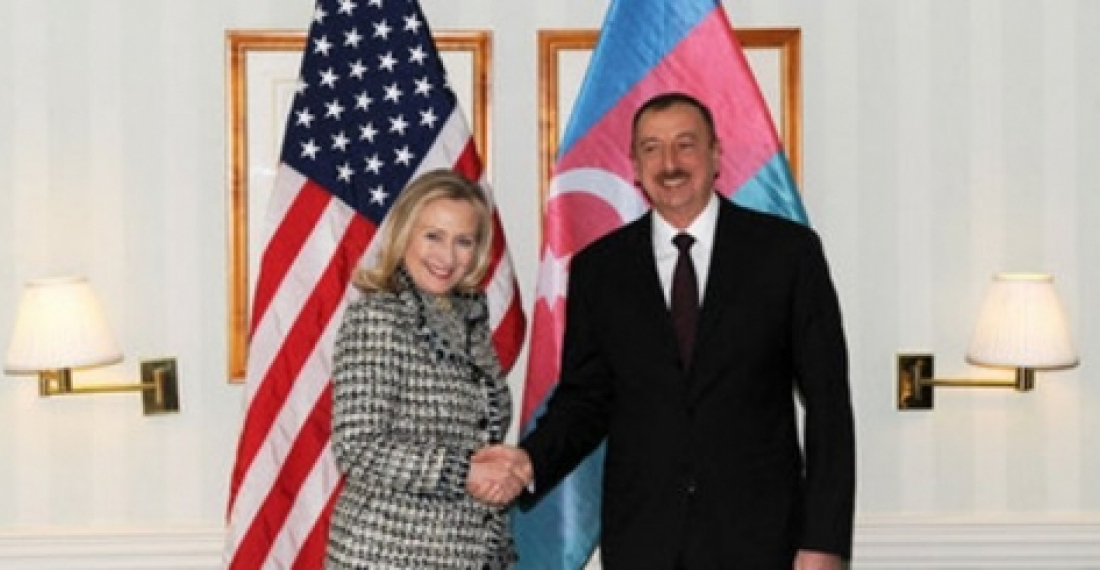The US Secretary of State, Hilary Clinton had seperate meetings yesterday with the President of Azerbaijan, Ilham Aliev, and with the Armenian Foreign Minister Edward Nalbandian. The meetings took place on the margins of the Annual Munich Security Conference in the Bavarian capital.
Issues related to the Nagrono-Karabakh conflict settlement process, as well as bilateral relations were discussed in the two meetings. Secretary Clinton reiterated her support for a peaceful resolution of the conflict and the continued readiness of the United States to work with the two sides in order to achieve this.
source: commonspace.eu with agencies
photo: President Aliev of Azerbaijan with US Secretary of State Hilary Clinton in Munich on 4 February 2012. (Picture courtesy of the Press Service of the President of Azerbaijan).







